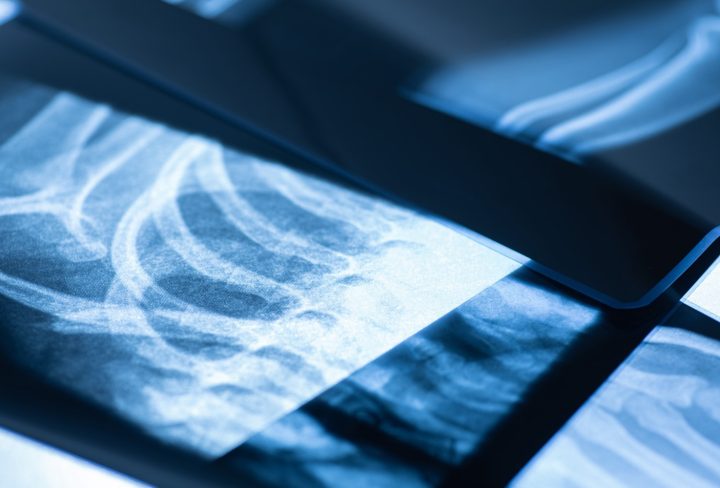Computed tomography or cat scan or CT scan is a diagnostic test that gives 2-dimensional cross-sectional detailed images that provide more information about the internal organs in the body.
When computed tomography (CT) test is performed on the chest or upper thorax, it is called chest CT. The test helps to examine abnormalities of the organs in the chest region, such as lungs, heart, etc., and helps diagnose the cause of unexplained cough, shortness of breath, chest pain, fever, and other chest symptoms.
Who Is the Right Candidate for a Chest CT?
Your doctor may advise a CT scan of the chest to check organs in the chest for:
- Blockages
- Injuries
- Intrathoracic bleeding
- Infections (Pneumonia, TB)
- Other health problems (cystic fibrosis, bronchiectasis)
- Tumors and other lesions
- Unexplained chest pain
- Congenital abnormalities
- Interstitial and chronic lung disease
How do I prepare for a Chest CT scan?
If you have a chest computed tomography (CT) scheduled, these tips can help you prepare for the test.
PRECAUTIONS: Please inform your doctor prior to the test if you are pregnant or think you may be pregnant.
CLOTHING: Most of the time, you may be asked to change into a patient gown provided at the test center. You need to remove all piercings and leave all jewelry and valuables before taking the test.
CONTRAST MEDIA: A CT scan is most frequently done with and without contrast media.
A double contrast study is the most common type of CT scan, which will require you to drink contrast media before your exam begins, in addition to the intravenous (IV) contrast.
ALLERGY: Please inform the diagnostic center representative if you have had an allergic reaction to any contrast media.
EAT/DRINK: If your doctor ordered a CT scan with contrast, do not eat anything 3 hours prior to your CT scan.
MEDICATION: Patients can take their prescribed medications as usual.
Consult your doctor before the CT scan, as based on your medical condition, your doctor may request other specific preparations.
What To Expect During a Chest CT Scan?
The CT scanning usually takes less than 30 seconds. However, the entire process (including exam prep) may take about 30 minutes.
You are asked to lie flat on your back on the exam table. Straps and pillows are used to maintain your position.
Most of the time, the CT scan is fast enough to scan children or adults without sedation. Some exceptional cases may need sedation.
Lying still during the scan is very crucial, and motion may cause blurring of the images and degrade image quality.
A Contrast CT scan requires injecting the contrast material by a healthcare professional into a vein shortly before the scan.
The CT exam table will move quickly through the scanner to determine the correct starting position for the scans.
You may need to hold your breath for a few seconds during the scan.
The technologist may ask you to wait until they verify that the images are of high enough quality and accurate for the radiologist to interpret.
Benefits Of a Chest CT Scan
- CT scanning is a fast, simple, painless, non-invasive, accurate, cost-effective, and widely available diagnostic test.
- CT scan is extremely sensitive and can detect exceedingly small nodules in the lung and chest, diagnosing cancers at an early stage.
- Ct scan can give 2-D images of bone, soft tissue, and blood vessels simultaneously.
- Many times, a CT scan is ordered by a doctor after noticing something abnormal in an X-ray.
- In emergency cases, they can quickly reveal internal injuries and bleeding to help save lives.
- CT scan diagnosis can eliminate the need for exploratory surgery and surgical biopsy.
- Ct scan will not leave any radiation in the patient’s body after the scan.
- The CT scan does not have any immediate side effects.
- Low-dose CT scans of the chest use a lower radiation dose than conventional chest CT.
- Any implanted medical device will not prevent you from having a CT scan, unlike MRI (Magnetic Resonance Imaging).
- CT is less sensitive to patient movement compared to an MRI scan.
Discuss with your doctor to know more about the CT scan!

